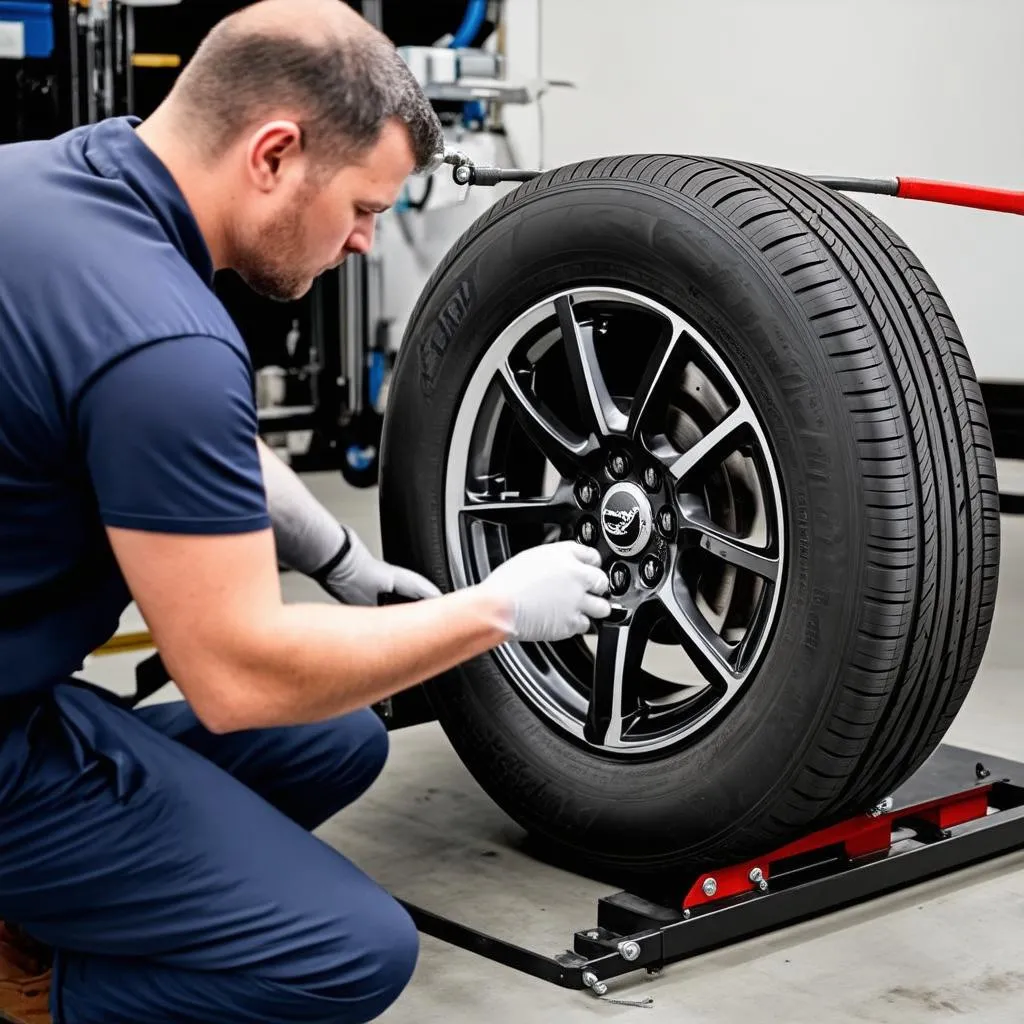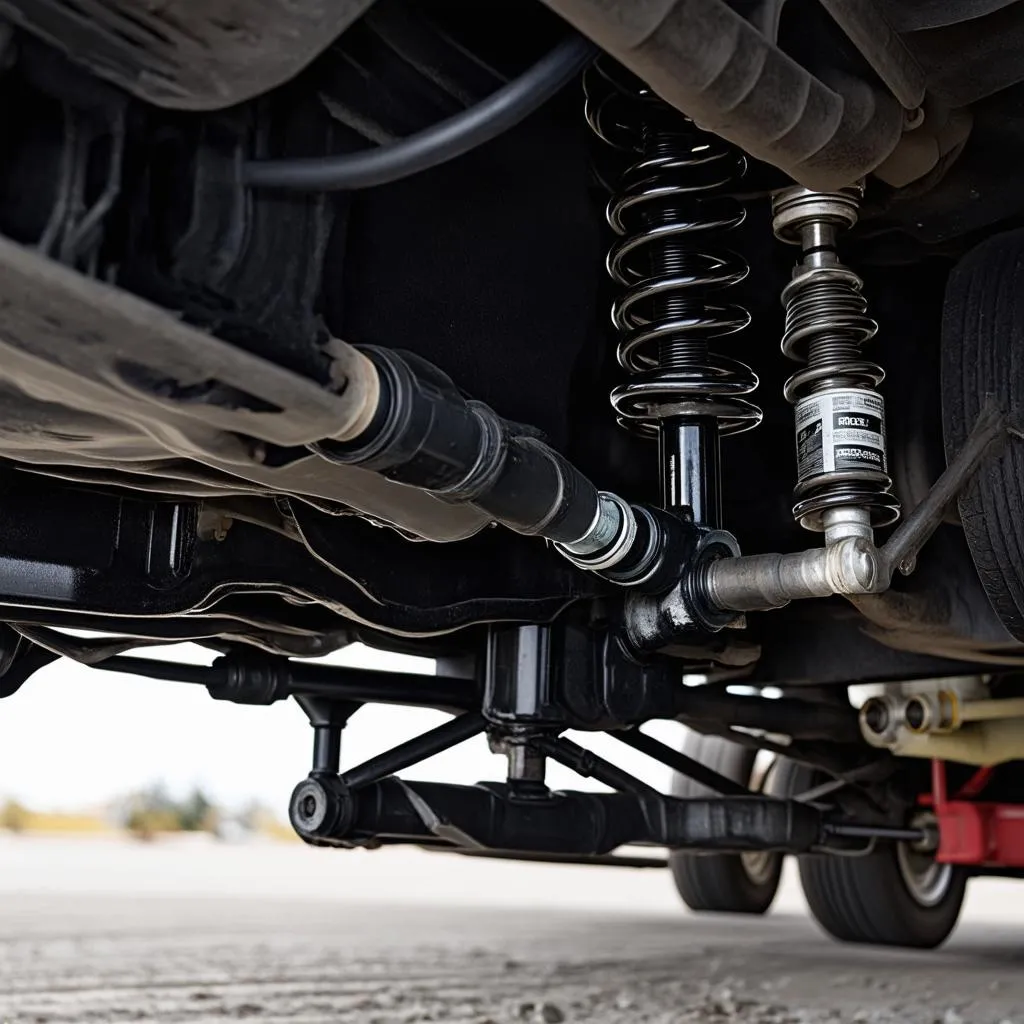Have you ever been cruising down the California coast highway, sun shining, music playing, and then as you hit 60 mph… your car starts shaking? You’re not alone. This is a common issue many car owners face, and it can be downright unsettling (not to mention potentially dangerous!). But before you hit the panic button, let’s dive into the possible reasons behind those unwanted vibrations and how to get your car running smoothly again.
Deciphering the Shakes: What Does it Mean?
“Car shaking after 60 mph” can mean different things to different people. For a concerned car owner, it’s a sign of trouble, a potential drain on their wallet, and a safety concern. For a mechanic, it’s a symptom with multiple potential causes that need to be diagnosed. From a technical standpoint, it indicates an imbalance or misalignment in a system that operates at higher speeds, impacting your car’s overall performance and stability.
Getting to the Root of the Problem: Common Culprits
Let’s talk solutions. Here are some of the most common culprits behind those post-60 mph shakes:
1. Tire Troubles:
This is often the first stop on our diagnostic journey.
- Unbalanced tires: Imagine a washing machine on spin cycle with an uneven load – that’s what unbalanced tires do to your car, especially at higher speeds.
- Misaligned wheels: Even a slight misalignment can cause your car to pull to one side and create those dreaded vibrations.
- Worn tires: Think of your tires as your car’s shoes. Worn-out shoes make for an uncomfortable walk, and worn-out tires? You guessed it—a bumpy ride!
2. Suspension System Sins:
Your car’s suspension system is like its shock absorbers. If something is amiss here, expect a rough ride.
- Worn-out shocks or struts: Over time, these components wear down, reducing their ability to dampen bumps and vibrations.
- Damaged suspension components: Potholes, rough roads, and even normal wear and tear can take a toll on your control arms, ball joints, and other suspension parts.
3. Alignment Issues:
Remember that misalignment we mentioned earlier? It’s not just about your wheels.
- Improper alignment: This can be caused by hitting a curb, driving over potholes, or even just normal wear and tear.
4. Driveline Dilemmas:
The driveline transmits power from your engine to your wheels. Any issues here can definitely make themselves known.
- Worn-out U-joints: These joints connect your driveshaft to your transmission and differential. When they wear out, you’ll feel it!
- Bent driveshaft: This can occur from impact damage or even just age and stress.
5. Brake System Blues:
Yes, even your brakes can be the culprit!
- Warped brake rotors: This can happen due to excessive heat and friction, leading to vibrations when braking, which can be felt at higher speeds.
Don’t Just Live with the Shakes: Take Action!
Ignoring car troubles never makes them magically disappear. Here’s what to do:
- Safety First: If your car shakes violently, especially when braking, pull over immediately and call for roadside assistance.
- Start with the Simple Stuff: Check your tire pressure and visually inspect your tires for wear and tear.
- Visit a Trusted Mechanic: A professional mechanic can diagnose the issue accurately using specialized equipment like a Dealer Scanner For European Cars, which can pinpoint electronic system issues that might be contributing to the problem. They’ll inspect your suspension, alignment, driveline, and brakes to identify the root cause.
 Tire Balancing
Tire Balancing
Car Shaking After 60 mph: FAQs
Q: Can driving on a flat tire cause my car to shake at high speeds?
A: Absolutely! Driving on a flat tire is extremely dangerous and will definitely cause vibrations, especially at higher speeds. Replace the tire immediately.
Q: I just got new tires, and now my car shakes. Why?
A: New tires need to be balanced. It’s possible the balancing was not done correctly, or the weights have come off.
Q: Can worn-out spark plugs cause shaking at high speeds?
A: While worn-out spark plugs can cause engine misfires and vibrations, they are less likely to be the primary culprit for shaking specifically after 60 mph.
 Car Suspension System
Car Suspension System
Keep Your Ride Smooth
Remember that story about the California coast highway? Don’t let car troubles ruin your road trip. Regular maintenance, prompt attention to issues, and a trustworthy mechanic are your best defense against those unwanted car shakes.
Need help diagnosing a car problem? Our team of auto repair experts is available 24/7. Contact us on Whatsapp at +84767531508 for assistance with Diagnostics Tools and software. We’re here to help you get back on the road and enjoying the ride!
Explore More:
For more insights on car maintenance and troubleshooting, check out these articles: